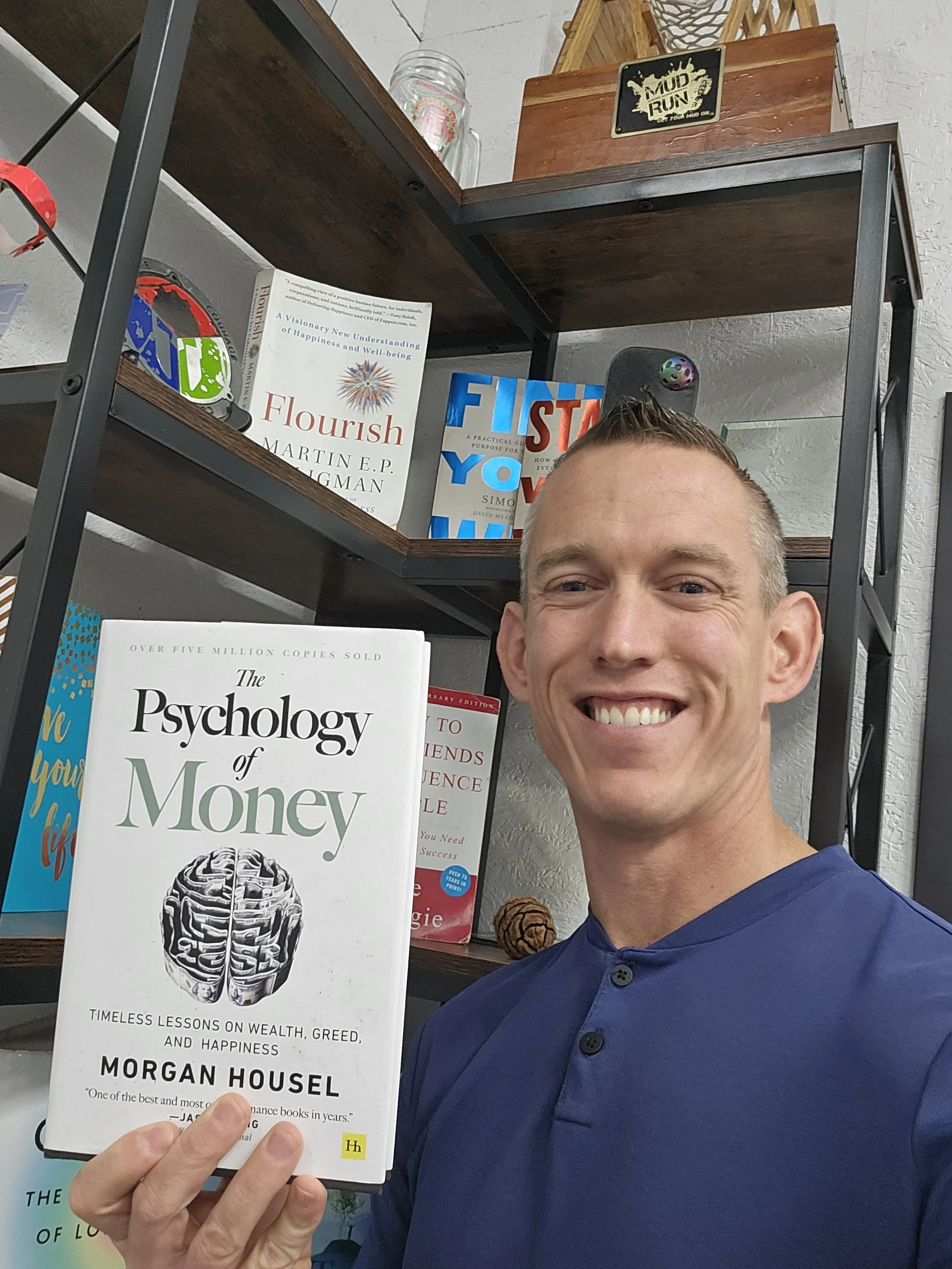Nov ‘24 BOTS: The Psychology of Money
November’s Book on the Shelf
The Psychology of Money by Morgan Housel
Dimensions of Wellbeing: Material, Directional, Mental
Zig Ziglar once said, "Money isn't the most important thing in life, but it's reasonably close to oxygen on the 'gotta have it' scale." For many of my clients, material wellbeing—which includes financial security—is already figured out. This strong foundation enables them to explore deeper questions like, "What’s my purpose?"
But getting to that place of stability isn’t accidental—it requires intentional behaviors and mindsets. Morgan Housel's The Psychology of Money highlights the very reasons my clients have achieved this foundation, and why financial security is essential before they can focus on higher pursuits.
“Forty percent of Americans cannot come up with $400 in an emergency. Which is to say: Those buying $400 in lottery tickets are by and large the same people who say they couldn't come up with $400 in an emergency." - Morgan Housel, p. 18
Until we secure the basics, transcending to the higher levels of Maslow’s hierarchy—where purpose and fulfillment live—is almost impossible. Housel breaks down these concepts with clarity, showing how financial health isn’t just about numbers; it’s about behavior.
Takeaways:
Housel explains that managing money is more about how you think and act than how much you earn.
Behavior Over Math: Wealth is built on consistent habits, not windfalls or high salaries.
Perspective is Everything: Your financial decisions are shaped by your unique experiences—what worked for someone else might not work for you.
Simplicity Wins: Living within your means and avoiding unnecessary risks often outweighs complex financial strategies.
It’s Not as Bas as You Think: Concepts like “you can be wrong half the time and still make a fortune” and “Reasonable > Rationale” remind us that we shouldn’t make decisions based on fear, emotion, or perfection.
You’ll Love This Book If: You’re curious about the psychology behind financial decisions and want timeless principles that apply to everyone, regardless of income or socioeconomic status.
Don’t Read This Book If: You’re looking for a step-by-step guide to getting rich, or you’re uncomfortable confronting behaviors and mindsets that might be holding you back financially.
Reasons I Love This Book:
Housel’s writing is refreshingly simple and accessible. Each chapter meets you where you are, whether you’re just starting out or well-established financially. The universal values in this book resonate deeply. It doesn’t matter how much money you have—it’s about understanding the why behind your choices.
What would change if you didn’t have to worry about money anymore?
Are your financial habits setting you up for the life you want, or holding you back from the one you deserve? The Psychology of Money invites us to rethink how we manage and prioritize wealth—not to hoard it, but to align it with a life of purpose.
Let’s talk about how your material wellbeing can serve as the foundation for your next big move. Reach out, book a free 30-minute discovery call, and let’s explore how your financial choices can fuel the life you truly want to live.


